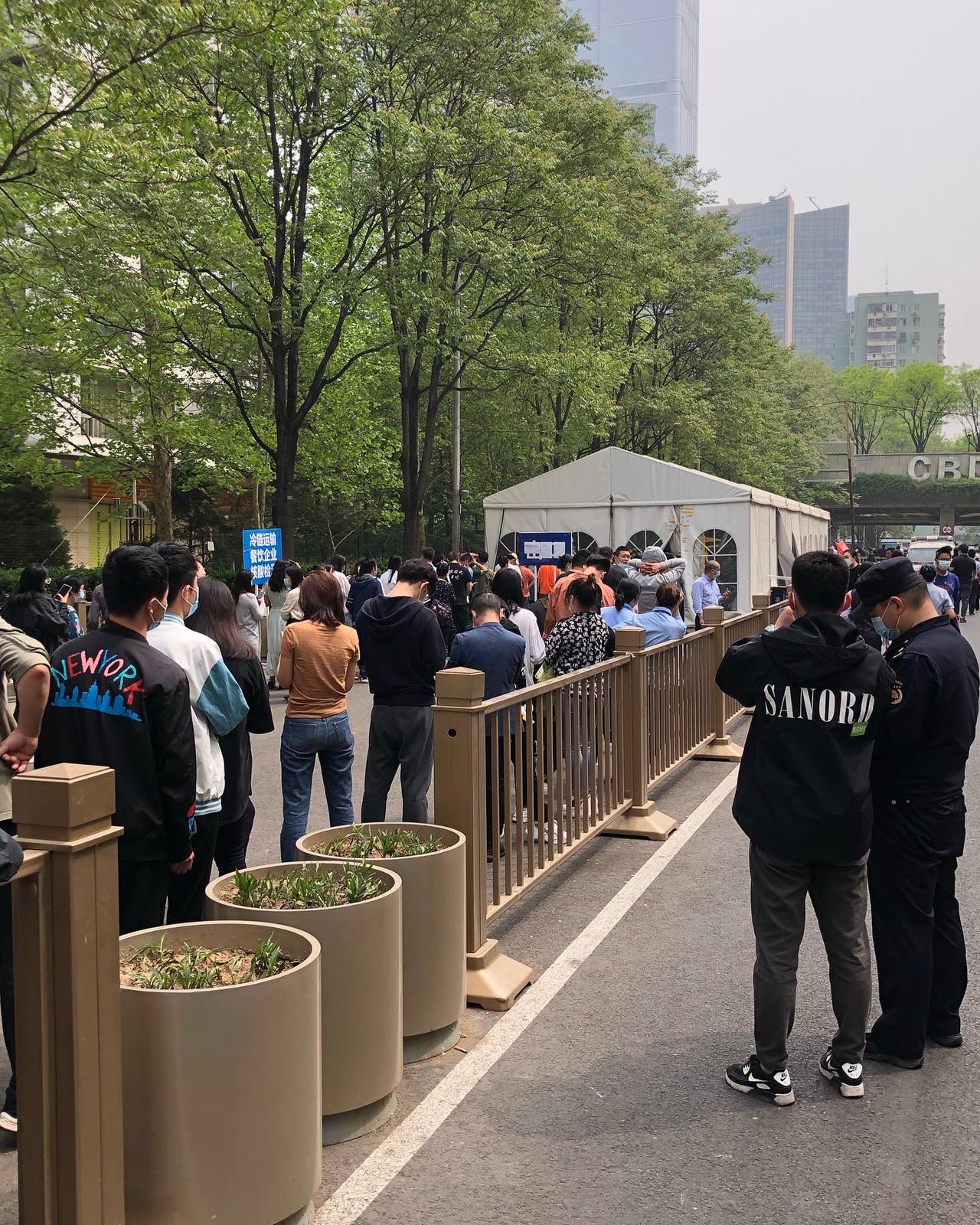Part of Beijing’s Chaoyang district is to be put under stricter COVID-19 measures to help contain the spread of the virus.
As reported by Jiemian News, the measures were announced on April 25 in a press release by Chaoyang district government. The area under stricter measures is located east of the second ring road and west of Xidawang Lu; north of Huawei Nan Lu and Songyu Nan Lu, and south of Guangqu Lu.
See the map below (restricted area indicated by the red box).
The area within the red box will face stricter COVID-19 measures. Screengrab via Baidu Maps with edits via That’s/Alistair Baker-Brian
Measures include the following:
-
Residents should not leave the restricted area. Residential communities are to enforce stricter measures related to the scanning of the Beijing Health Kit QR code, temperature checking etc. Residents should stay in their residential communities and only leave for essential purposes
-
Those whose place of work is in the area should, where possible, work from home
-
Businesses in the area such as restaurants and bars, spas, KTVs, mahjong halls, internet cafes, entertainment halls, gyms and movie theaters have been ordered to temporarily close
-
Essential shops and services will remain open as usual
-
If no new positive cases are found from the compulsory nucleic acid testing on April 25 and 27, the aforementioned area’s temporary measures will be lifted (other district- and city-wide measures will remain in place)
If you are outside of this area but still live or work in Chaoyang district, you must undergo a nucleic acid test on April 25 (date of publication), April 27 and April 29, as reported by Xinmin Evening News.
This is in accordance with the district’s mass testing policy.
Temporary testing sites have been set up nearby residential communities and places of work. If you are unsure about where to get tested, speak to your employer or residential community.
In most cases, residents and employees have been told to take their ID cards (foreigners should take their passport) to the testing sites; it’s better to bring it with you and be on the safe side.
One testing site located in the Beijing CBD was divided into two lines with one designated specially for cold-chain food workers.

Residents and employees in Beijing’s CBD area line up for nucliec acid testing. Image via That’s/Alistair Baker-Brian
The mass testing comes as Beijing reports a total of 70 cases in the latest outbreak, many of which have been detected in Chaoyang district, an area which includes the city’s CBD, as well as many foreign embassies.
At the 312th Press Conference on the Prevention of COVID-19 by the Beijing Information Office on April 23, officials said they believed the virus had already been circulating undetected for around one week prior to the bulk of current cases in the latest outbreak.
Beijing currently has one high-risk area located in Songyuli community, Panjiayuan, Chaoyang district – the aforementioned area under stricter COVID-19 measures. The dreaded star was briefly removed from the Travel Code (行程卡) on April 22… before reappearing a couple of days later.
China is still pursuing its ‘dynamic zero-COVID’ strategy which seeks to eliminate the virus rather than ‘live with it.’ Be sure to keep up to date with the latest COVID-19 measures in the coming days, weeks and months.
Liang Wannian, head of the COVID-19 response expert panel under the National Health Commission, told Xinhua: “The essence of the dynamic zero-COVID approach is early detection and quick response measures to stop the continuous spread of the virus in communities to protect people’s health and lives to the greatest extent.”
[Cover image via Weibo/@人民公安报]


Be the first to comment